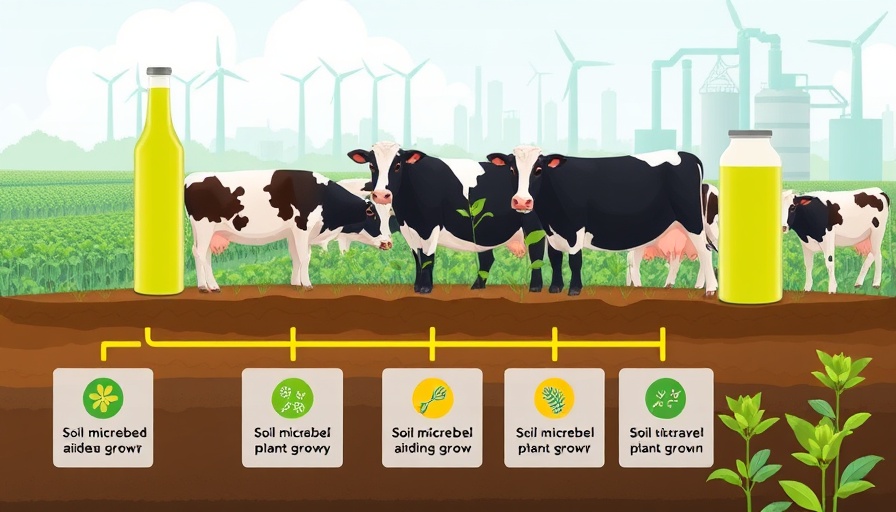
The Unseen Heroes: Microbes in the Climate Fight
As we grapple with the profound impacts of climate change, a glimmer of hope emerges from a surprising source—microbes. A groundbreaking report by the American Society of Microbiology and the International Union of Microbiological Societies sheds light on the potential these tiny organisms hold in mitigating climate change effects.
What Are Microbial Solutions?
The report highlights how specific microbial species can actively contribute to a greener future. These microorganisms, which thrive in various environments and conditions, can be engineered to break down organic matter, produce clean bioenergy, and sequester carbon effectively. Such innovations present an attractive alternative to traditional fossil fuels, laying the groundwork for a non-fossil fuel economy.
A Biological Revolution on the Horizon
As Rino Rappuoli, president of the IUMS, points out, we stand at a critical juncture—much like the Industrial Revolution of the 1800s. While that period marked a significant change through carbon emissions, today offers us the unique opportunity for a biological revolution focused on sustainability. This shift could redefine how we think about energy production and consumption, integrating natural processes into our economy.
Practical Implications: Energy Production
Microbial solutions could provide substantial energy resources; the report estimates that, if scaled properly, they could produce a staggering 245 exajoules of energy annually by 2050. This figure dwarfs the energy produced from coal, which generated approximately 180 exajoules in 2023. By harnessing the power of microbes, we could not only reduce carbon emissions but also transition to a more sustainable manufacturing process.
The Challenge Ahead: Scaling and Acceptance
Despite their potential, microbial solutions are often overlooked due to a lack of public and academic awareness. Understanding and promoting these solutions is crucial if we are to transition away from fossil fuels effectively. Nguyen K. Nguyen, lead author of the report, emphasizes the need for rapid adoption of these technologies, which offer not just a sustainable alternative, but an economically feasible one as well.
Conclusion: Taking Action Together
As the climate crisis looms, the time to act is now. Engaging in conversations about microbial solutions, supporting policies that foster research and development, and advocating for their integration into our economies are essential steps forward. By embracing these small yet mighty organisms, we can revolutionize our approach to climate change, enhancing our environment for generations to come.
 Add Row
Add Row  Add
Add 



 Add Row
Add Row  Add
Add 

Write A Comment